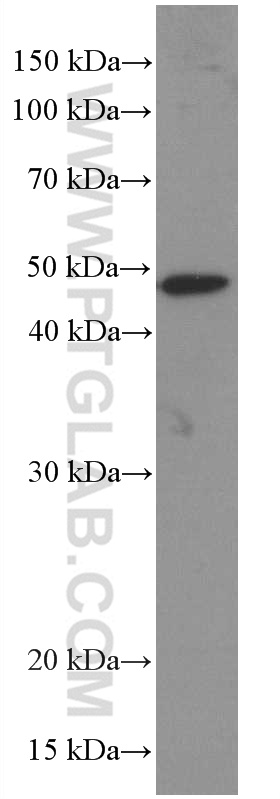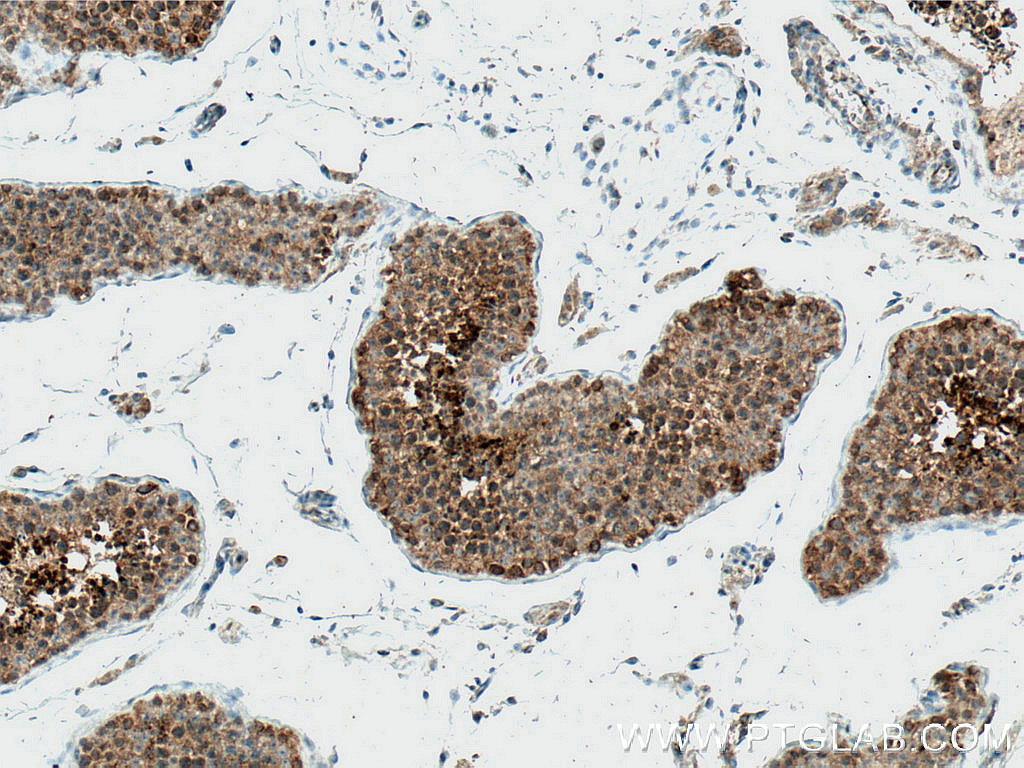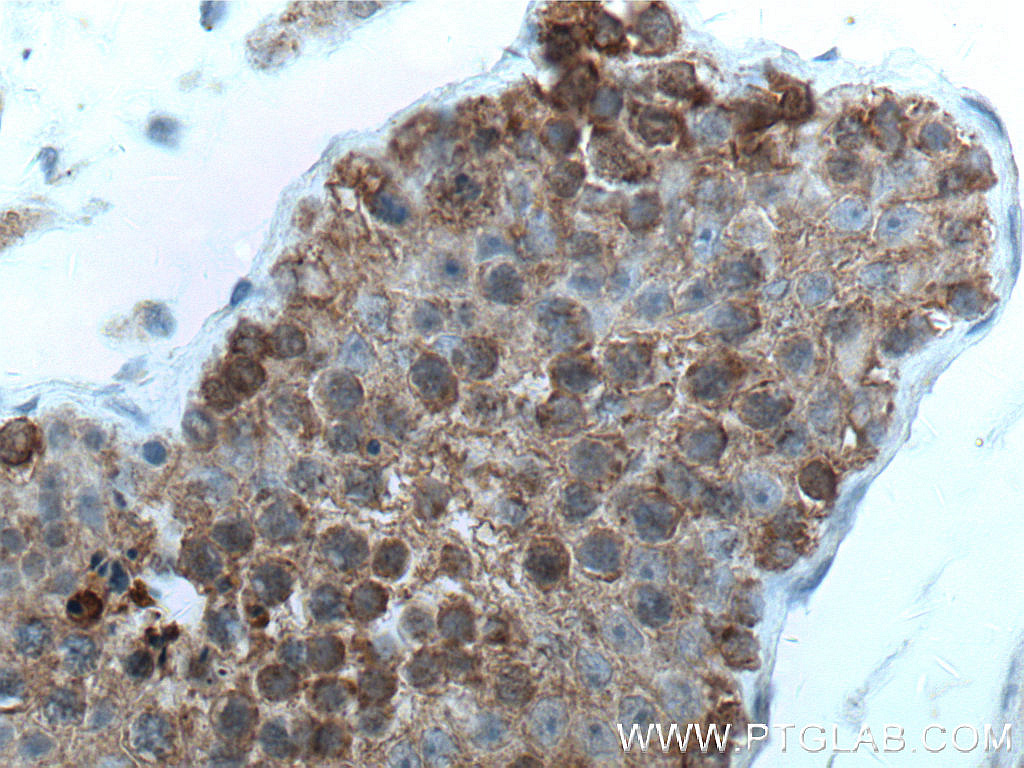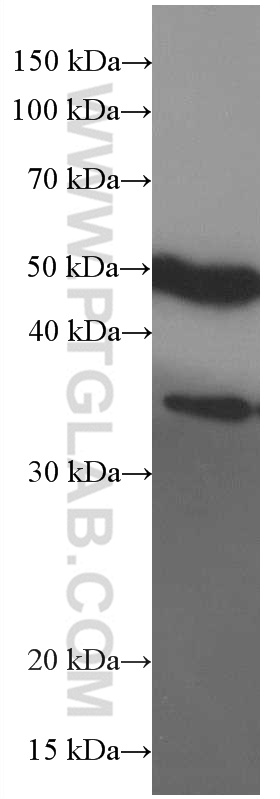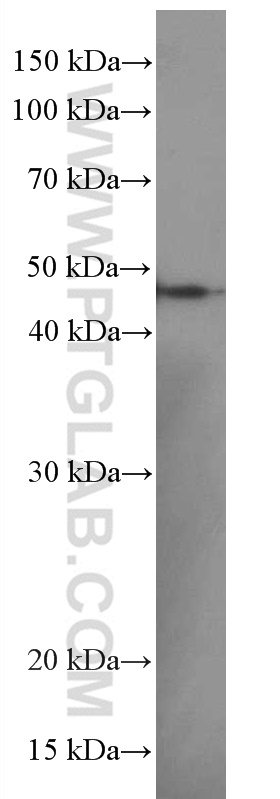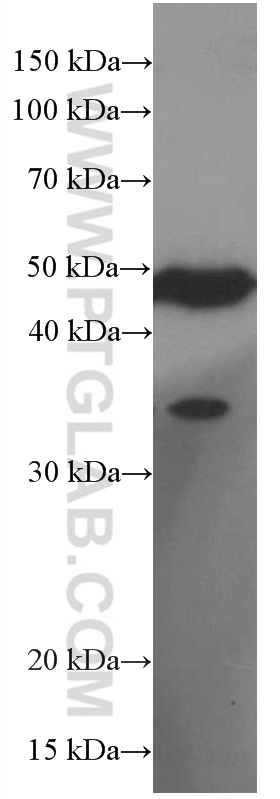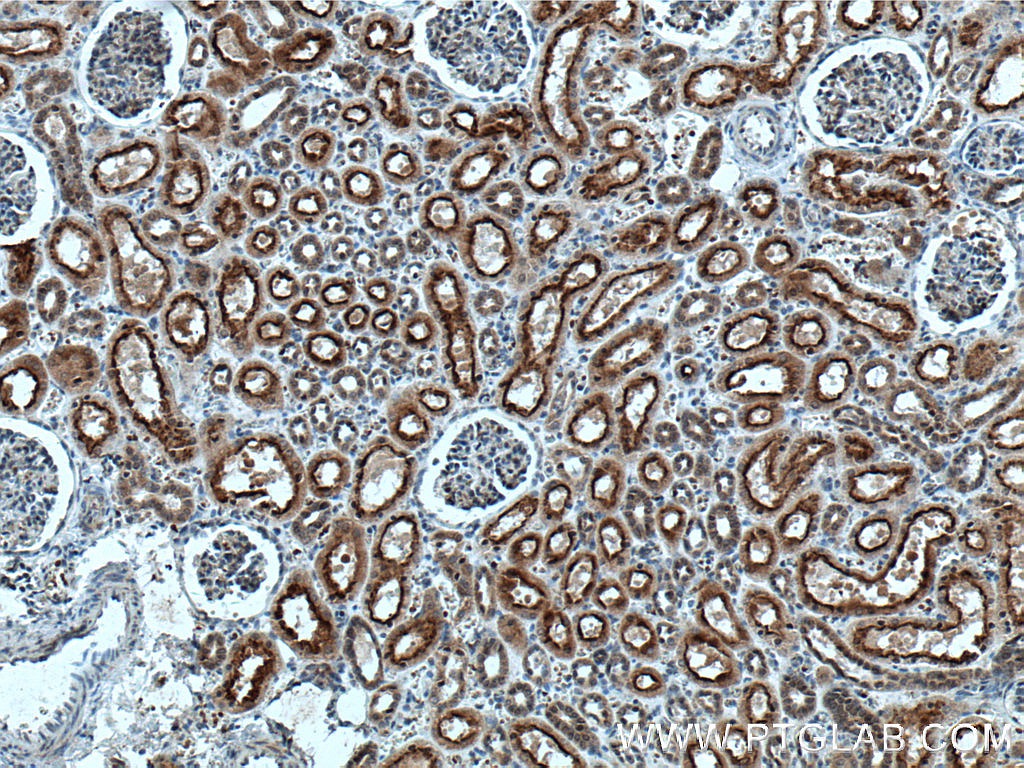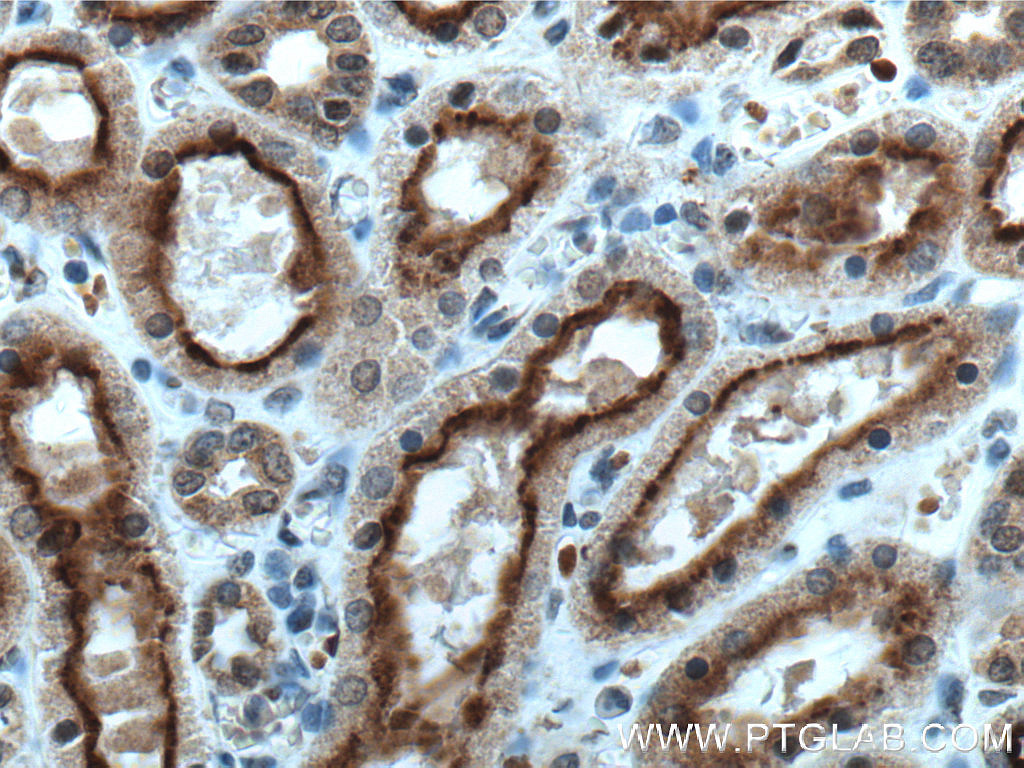验证数据展示
产品信息
66589-1-PBS targets PHD2/EGLN1 in WB, IHC, IF/ICC, Indirect ELISA applications and shows reactivity with human, mouse, rat, pig samples.
| 经测试应用 | WB, IHC, IF/ICC, Indirect ELISA Application Description |
| 经测试反应性 | human, mouse, rat, pig |
| 免疫原 | Peptide 种属同源性预测 |
| 宿主/亚型 | Mouse / IgG1 |
| 抗体类别 | Monoclonal |
| 产品类型 | Antibody |
| 全称 | egl nine homolog 1 (C. elegans) |
| 别名 | EGLN1, PHD2, EGLN 1, ECYT3, EC:1.14.11.29 |
| 计算分子量 | 46 kDa |
| 观测分子量 | 46 kDa, 44 kDa, 36 kDa |
| GenBank蛋白编号 | NM_022051 |
| 基因名称 | PHD2/EGLN1 |
| Gene ID (NCBI) | 54583 |
| RRID | AB_2881949 |
| 偶联类型 | Unconjugated |
| 形式 | Liquid |
| 纯化方式 | Protein G purification |
| UNIPROT ID | Q9GZT9 |
| 储存缓冲液 | PBS only , pH 7.3 |
| 储存条件 | Store at -80°C. The product is shipped with ice packs. Upon receipt, store it immediately at -80°C |
背景介绍
EGLN1, also named as PHD2, SM-20, HPH-2 and HIF-PH2, catalyzes the post-translational formation of 4-hydroxyproline in hypoxia-inducible factor (HIF) alpha proteins. It hydroxylates HIF-1 alpha at 'Pro-402' and 'Pro-564', and HIF-2 alpha. EGLN1 functions as a cellular oxygen sensor and, under normoxic conditions, targets HIF through the hydroxylation for proteasomal degradation via the von Hippel-Lindau ubiquitination complex. Defects in EGLN1 are the cause of erythrocytosis familial type 3 (ECYT3). EGLN1 has 3 isoforms with MW of 46 kDa, 44 kDa and 36 kDa produced by alternative splicing. It mainly localizes in cytoplasm and can shuttle between the nucleus and cytoplasm (PubMed:19631610). The antibody is specific to EGLN1.
